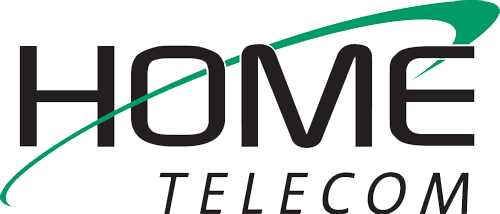
When we look back on the tech industry over the last 20 years, it’s remarkable how far we have come. We now have Smartphones, virtual personal assistants, have the internet readily available to search our queries, order groceries or dinner and can even turn our Smart Homes on with our digital devices.
Where will 2018 take our tech industry and what does Home Telecom anticipate seeing over the course of this promising new year?
Empathetic AI
Even though we have Siri and Alexa as virtual personal assistants, it’s still a stretch to call robots “intelligent.” While robots can process very advanced and impressive requests and tasks, they still can’t help us solve the world’s problems, give us empathy or help guide us in what we are meant to accomplish.
While having robots with human empathy and intelligence is far off, we do believe that we will see the first signs of enhancements this year with Siri, Alexa, Google Assistant, etc.
Instead of just asking simple questions, we should start seeing more human-like responses from these personal virtual assistants. For example, they should be able to carry more multi-part conversations, provide more comprehensive answers and even give more insightful suggestions based on our actions or desires.
To accomplish this, tech industries are focusing more on building digital empathy, learning about how people think.
The Year of the Accelerator
After CPUs domination, semiconductors will start exploring alternative chip architectures, which are “accelerators.” These will dramatically speed up specific tasks. 2018 will see more attention focusing on these new types of accelerators, and while CPUs will not disappear, more attention will be directed towards these advanced systems.
CPUs are suitable for general-purpose computing, but accelerators can focus more on specific tasks and dramatically increase efficiencies.
AR/VR Takes a Backseat
While 2017 was the year of AR and VR, such as Apple’s AR Kit, Google’s ARCore Smartphone, Windows 10 Mixed Reality headsets and Lenovo’s Mirage headset, we believe that this will take a backseat in 2018.
The reality is that large headsets are uncomfortable and holding an AR-enabled Smartphone in front of you is not practical. This year will likely leave AR and VR specialists refocusing their efforts, giving them time to contemplate making better products and experiences that realistically match part-time usage levels for users.
Edge Computing Will Transform the Cloud and Absorb IoT
For years, everyone has been talking about how the Internet of Things (IoT) offers endless opportunities. Connecting devices via a simple internet protocol (IP) was supposed to give the world smart homes, smart cities, smart companies and pretty much smart everything.
While this didn’t necessarily happen – because connecting things didn’t provide any value – it did open a lot of avenues for exploring other computing models. An evolution of the IoT concept is that by connecting and organizing things in a way that allows us to successfully tackle specific tasks, we can increase efficiencies.
A new key component of the evolved cloud computing is that it sits at the end of the network, close to those people that are attempting to achieve specific tasks. The balance of computing power will further shift away from the cloud being the center of everything and more towards a distributed, edge-driven model. 2018 will be a more intelligent tech-driven world.
5G Drives Competitive Connectivity
Recently, we are now seeing the new 5G NR (new radio), which is allowing the telecom industry to enter into an exciting new phase. While this year we will not see the commercial availability of 5G (we will likely have to wait for 2019), we will see some new connectivity enhancements that are inspired by the latest 5G.
WiFi standards will leverage more efficiency and modulation, and we should see some technologies combining, such as LTE and WiFi.
Voice Computing
As voice-based personal assistants become more popular, so do voice-based computing devices, such as smart speakers, lamps, TVs and cars.
We predict the result will be that in 2018, a significant number of personal assistant users will also have simultaneous access to multiple assistants across many devices. Because this can lead to many things in the home competing based on commands, we may see third-party vendors create a meta-assistant that then gives each different assistant a task.
